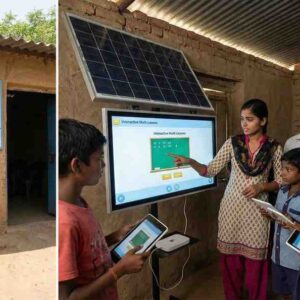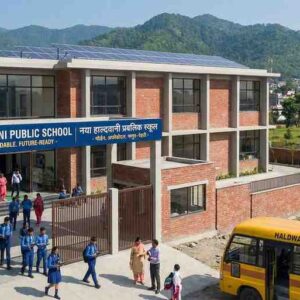As India positions itself on the global stage, the need for an adaptable, skilled workforce is greater than ever. In this fast-paced world, traditional education systems can’t always keep up with the demand for industry-specific skills. Enterdistance diplomas, a revolutionary force shaping the future of India’s economy. These flexible and accessible educational paths are not only empowering individuals but also contributing to India’s economic prosperity. Here’s how:
The Silent Engine: Closing the Skill Gap
India’s economic growth is tied directly to its workforce’s ability to innovate, adapt, and grow. Yet, a persistent issue remains—theskills gap. In a country brimming with potential, the demand for skilled professionals far exceeds supply.Distance diplomasserve as the silent engine closing this gap. By offering specialized, industry-driven programs indata science,artificial intelligence,business analytics, anddigital marketing, distance diplomas provide workers with the tools they need to meetglobal market demands.
These qualifications don’t just add credentials—they prepare workers toadaptquickly to evolving industries, enhancing productivity across sectors liketechnology,finance, andmanufacturing. In short, they’re helping bridge the divide betweenunmet demandfor skilled labor andIndia’s untapped potential.
Affordable Knowledge: Powering an Inclusive Economy
One of the biggest barriers to education in India has always been itscost. Traditional degrees and certifications often require substantial investments in time and money, putting higher education out of reach for many, particularly in rural and lower-income communities. But distance diplomas disrupt this by providingaffordable accessto high-quality education. Withlow tuition fees,online materials, andself-paced learning, these diplomas are a game-changer for those who might otherwise be excluded from the educational race.
In a nation where millions are just beginning to emerge from poverty, access toaffordable educationtranslates directly intoeconomic empowerment. By equipping individuals with the skills needed forhigh-demand sectors, distance diplomas contribute towider economic participation, leading to moreinclusive developmentandeconomic equalityacross India.
Empowering the Underserved: Reaching the Rural Workforce
The traditional education system often leaves behind India’srural population—but not anymore. Distance diplomas have become a lifeline for rural India, bringingglobal industry standardsright to their doorstep. Throughdigital platformsandoffline study resources, people in remote villages can now access industry-relevant courses in fields likeagriculture technology,logistics, andentrepreneurship.
This is not just education; it’seconomic upliftment. As rural communities gain access to relevant skills, they are no longer just consumers of the economy—they’recontributors. They’re starting businesses, optimizing local industries, and bringinginnovationto regions that once lagged behind. Distance diplomas are turning rural areas intoeconomic hubs, fueling local growth and narrowing the urban-rural divide.
The Spark for Entrepreneurial Innovation
In a country wherestartupsare seen as a vital engine for job creation and innovation, distance diplomas are helping individuals transform their ideas intobusinesses. Programs insmall business management,financial planning, anddigital entrepreneurshipempower aspiring entrepreneurs to kickstart their ventures without traditional barriers.
Whether it’s setting up ane-commerce platformor launching aconsulting business, distance diplomas offer the knowledge and confidence needed tonavigate the complexitiesof entrepreneurship. These businesses don’t just create jobs for the founders—they also become the backbone oflocal economies, drivingeconomic diversificationandsustainability.
Reshaping India’s Workforce: A Culture of Lifelong Learning
The traditional view of education as a one-time experience is quickly fading. With theacceleration of technological change, professionals must constantly adapt and evolve. Distance diplomas offer a pathway tolifelong learning, ensuring that workers remain relevant and competitive throughout their careers.
India’s workforce is becomingmore dynamic—individuals are no longer defined by a single degree or a static skill set. With distance diplomas, workers continuouslyupskill, responding toindustry demandsand contributing tolong-term economic growth. This shift towards a culture of continuous learning strengthensIndia’s competitive edge, both domestically and on the global stage.
The Ripple Effect: Driving National Economic Prosperity
The impact of distance diplomas extends far beyond individual careers. As more people gain industry-aligned skills, theworkforce becomes more productiveandinnovative, which, in turn, strengthens industries. Theeconomic benefits are immediate—higher-skilled workers lead tohigher productivity, which increases output across sectors.
In addition, theripple effectof this increased productivity is felt in the broader economy. As skilled workers drive innovation and efficiency, businesses are able toexpandandcompeteglobally. This boostsexports, creates jobs, and leads to the overallgrowth of the national economy.
The Unseen Catalyst for Economic Development ?
Distance diplomas are more than just an educational alternative—they areeconomic catalysts. Byclosing the skills gap, providingaffordable accessto education,empowering rural communities, fosteringentrepreneurship, and promotinglifelong learning, distance diplomas are playing a pivotal role in shaping India’s future.
As the economy continues to evolve, distance diplomas will continue to serve as thebackbone of a skilled workforce, ensuring that India remains competitive in a rapidly changing global economy. The true impact of these programs isn’t just seen in individual success stories—it’s felt in the broader economic growth that results from askilled, dynamic, and accessible workforce.










